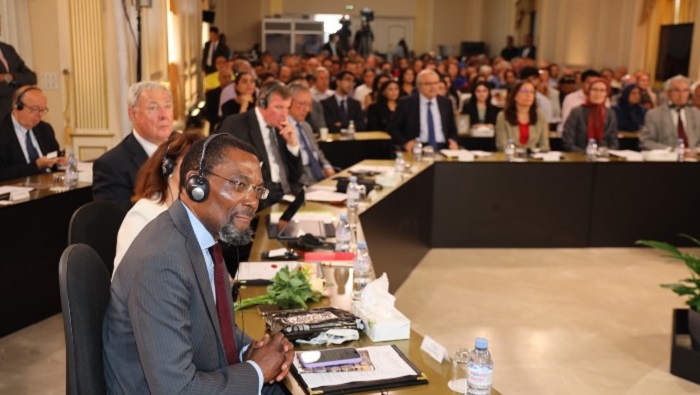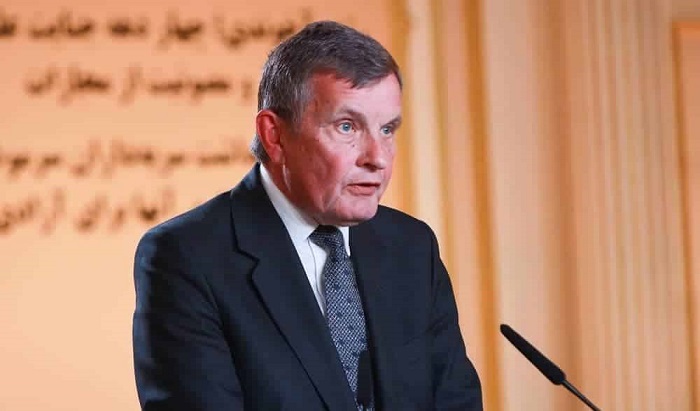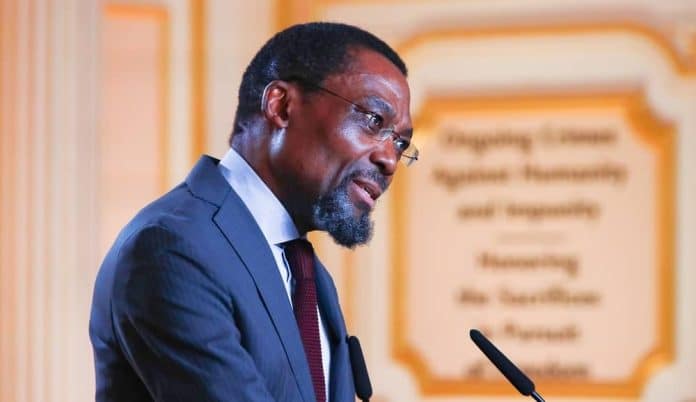
It stands as the most significant organized crime against humanity post World War II. Professor Chile Eboe-Osuji, former president of the International Criminal Court in The Hague, encapsulated the global concern by saying, “The 1988 massacre… amounts to the crime of at least enforced disappearance.” Professor Leila Nadia Sadat, Special Adviser to the Prosecutor of the International Criminal Court, labeled the massacre as “one of the worst instances of crimes against humanity.”
Echoing these sentiments, Professor Vilnas Vadapalas, judge of the General Court of the European Union, drew parallels with the persecution of political groups in Lithuania. Meanwhile, international human rights lawyer Sheila Paylan explicitly mentioned the role of Khomeini’s fatwa in the heinous act.
This sentiment resonated with many at the conference. They expressed the urgency to hold the perpetrators, some of whom continue to occupy senior roles in Iran’s regime, accountable.

This monumental conference is an emblem of a litigation movement that traces back to August 25, 1988. Massoud Rajavi penned a letter to the then UN Secretary General, Perez Duquelar, revealing the execution of 860 political prisoners within a span of three days. In his plea, Rajavi insisted on international intervention to halt the rapid spree of executions.
Yet, 35 years later, as highlighted in the conference, the United Nations and global powers have mostly been silent. Mrs. Maryam Rajavi asserted, “On a global scale, the moment has arrived to end the four-decade-long impunity enjoyed by the clerical regime’s leaders.” She called for the prosecution of Khamenei, Raisi, Ejeii, and others responsible for the 1988 massacre and subsequent crimes against humanity.

The conference concluded with a resounding call for the international community to break its silence and ensure justice prevails for the victims of this unparalleled atrocity.

MEK Iran (follow us on Twitter and Facebook), Maryam Rajavi’s on her site, Twitter & Facebook, NCRI (Twitter & Facebook), and People’s Mojahedin Organization of Iran – MEK IRAN – YouTu







